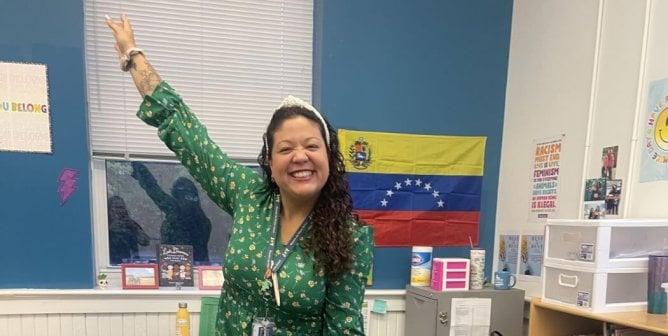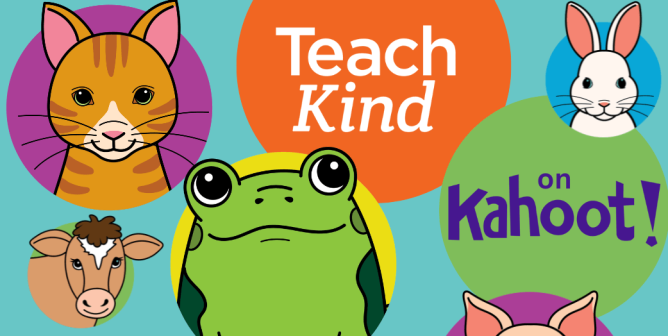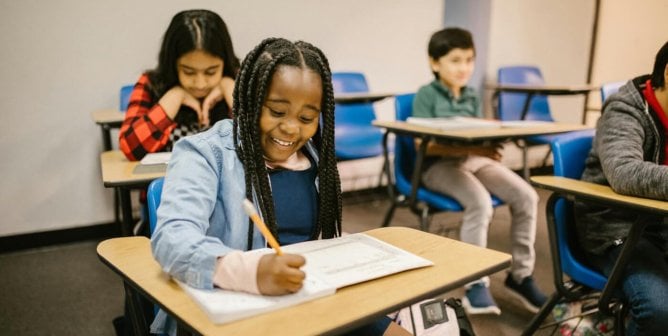National Poetry Month Activities: A Literary Celebration for Animals
April is National Poetry Month—it’s a time to celebrate the genre and a great opportunity to share poems about animals and teach your students how they can use poetry as a powerful expression of their compassion for other sentient beings.
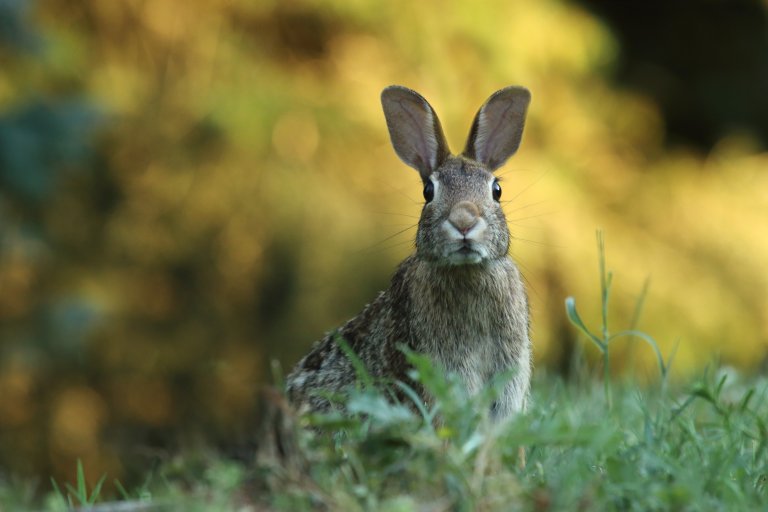
Celebrate this month in your classroom with these compassionate activities that can spark literary achievement at all grade levels:
Elementary School
Grades K–2
For younger learners, reading and writing poetry can help strengthen their phonemic awareness, allow them the freedom to be creative, and get them excited about studying the writer’s craft. We encourage elementary educators to integrate poetry into their lessons, as it will inspire children to express themselves and speak to the world around them through their unique perspectives.
Read many different types of poems to your students, and when they’re ready to write their own, make sure they know that their poems don’t have to rhyme. Help them understand that they can tell a story, play with words, or interpret the world by writing a poem.
For inspiration, have students read “My Vegan Dream,” written by then-7-year-old animal advocate Genesis Butler and inspired by Dr. Martin Luther King’s “I Have a Dream” speech.
I have a dream that all animals on earth will have peace in their lives,
We all deserve it, human or not, for this I have fought.
It’s just that simple, don’t eat meat.
This is my vegan dream.
Have students take note of the words Genesis used in her poem, like dream, peace, and vegan, and ask them to describe what these words mean to them. As a follow-up activity, students could create their own version of the poem.
They can even use poems to teach others about animals. You can show them how to describe animals in a list poem like this one:
Pigs
Smart
Clean
Friendly
Social
Good smellers
Good mothers
Loving
Then discuss why you chose words like smart and clean, since there’s a misconception that pigs are the opposite of those things. As you can see, there’s always a way to integrate humane education into your lessons.
Children love to write about their favorite animals and to express their love for them. Let them practice doing that with repetitive patterns like this one, written by first-grader Jaden:
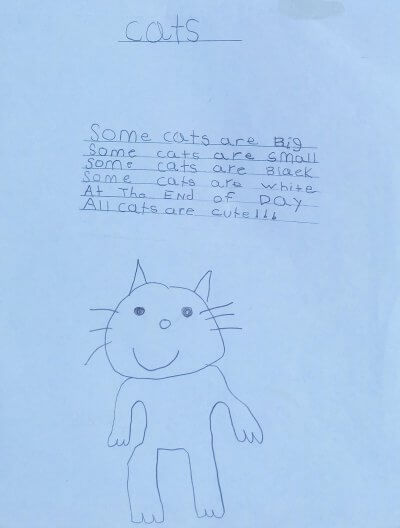
Grades 3–5
“Point of view” is a position or perspective from which something is considered or evaluated. Use Shel Silverstein’s poem “Point of View” as a powerful way to help students recognize how point of view can influence the way that something is described in a poem. In this case, you can discuss the author’s point of view as well as the points of view of the animals in the poem. Ask students the following questions:
- “Why does the author describe meals as sad, dark, bad luck, etc.?” (Possible answer: He’s trying to show empathy for animals who are killed for food.)
- “How would you express the point of view of the animals referred to in the poem—turkeys, chickens, ducks, tuna, pigs, lobsters, and lambs?” (Possible answer: Their point of view is that their lives are important to them, so they don’t want to be killed and turned into food.)
Have students construct poems from the point of view of animals (perhaps their animal companions). Students should put themselves in the animals’ place and consider how they would feel if they were them. What would they be afraid of? What would they enjoy? What would they want in life? Be sure to let students know that their poems don’t have to rhyme.
Students can “popcorn” read (that is, take turns reading lines of the poem until it’s been read in its entirety) this poem by author and activist Stewart Mitchell (aka “Vigilante Vegan”). After reading, students can practice identifying rhymes (ways/days) and slant rhymes (same/names).
I Love the Animals
By Stewart Mitchell
I love the animals!
They are my friends,
Cows, piglets and also hens
Bunnies, puppies and kittens too
And horses just to name a few!
I shower all my friends with love
I give them kisses and lots of hugs
They show me affection in different ways,
They bring me sunshine on gloomy days!
I cause no harm to those I love
From fish below to birds above
I show them kindness and compassion
They are my friends, not food and fashion!
Some of my friends have colorful feathers
Some have fur for frigid weather,
Some wear scales and slither around
Some of my friends live underground
Some have spots and some have stripes
Some of my friends come out at night,
All animals are the same
They just go by different names
They all want to live life happy and free
No different from you, no different from me!
They all are deserving of respect
That’s why I treat my friends the best
So please show them love the way that I do,
Because my friends are your friends too!
Middle and High School
Many lessons can be created using famous poems that feature animals as metaphors, such as Maya Angelou’s “Caged Bird.” Angelou advocated all her life for the rights of the oppressed, especially women and minorities, famously saying, “The truth is, no one of us can be free until everybody is free.” Explore the overall meaning of “Caged Bird” with your class, and discuss how caged birds were used as metaphors for slavery and oppression. Discussing this poem will give your students a great chance to consider the oppression and exploitation of those who are seen as “different.”
Unfortunately, the plight of animals is often not considered worthy of discussion, but we understand the unfairness being represented and recognize the power of the metaphor.
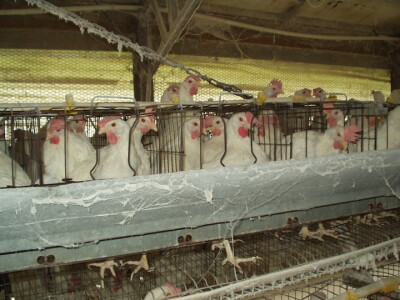
And why not have your students read Shel Silverstein’s poem “People Zoo”? It’s written from the point of view of a human locked away in a small cage with nothing to do. It helps the reader consider what life is like for animals kept at dingy roadside zoos. Have your students work with a partner to consider which lines of the poem address the central idea of the work.
Poetry can also provide students with an opportunity to refine their oral and written language skills, which can lead to greater academic achievement. They learn how to contemplate sentence construction thoughtfully so that they can use language effectively and stylistically.
Students can be inspired by Youth Poet Laureate Amanda Gorman and this excerpt from her poem “The Hill We Climb”:
And the norms and notions
of what just is
Isn’t always just-ice
Have students read her poem in its entirety, highlighting key words like justice throughout the text. Students can practice word play as she does (e.g., just is and just-ice). For an additional example of word play, have students reference this quote by PETA SOS member Ananya Nagendra:
Have students contemplate the norms and notions in their own community as they relate to animals (e.g., eating meat, hunting, fishing, wearing leather, etc.). Have them put into words how their community can make positive changes for the sake of all living, feeling beings.
And since many students today are deeply concerned about the plight of animals, they can use poetry as a powerful expression of their passion to help them.
Here’s one high school student’s literary achievement that was sparked by compassion:
Merciless Scorn
By Shannon Spran
When I hear of what becomes of her milk,
My mother do I endlessly mourn,
For a kind being, with a coat smooth like silk,
Does not deserve such merciless scorn.
I will be honest: She did not want me,
However shocking and sad.
A farmer forced her. How mean can one be?
That cruelty just makes me so mad.
I still remember her voice and her beautiful eyes,
Yet such makes me cry all alone.
I was separated from her, and to my despise,
Without her, I am literally bone.
My bed is no-longer grass and sun,
For it is now a small pen full of sorrow.
I can’t turn or lay down… I have a painful nose ring—Not fun!
And my horns, tail, and tongue? I have zero.
Soon, I, too, will be forced
To give birth to a calf, just like mom.
We have the same, sad end, in due course,
And that fact can barely keep me calm.
By now, I think my mom is gone,
Along with all the old male friends that were mine,
They were all killed for this cause… Please, let this fact dawn:
The dairy industry is not at all kind.
I have had several calves now, all of which taken,
My babies do I endlessly mourn,
For such kind beings, of whom were my kin,
Did not deserve such merciless scorn.
My time will be soon over, but I don’t want to die.
This cannot be the life that I was planned!
If only humans never used this milk of mine,
Then this industry would’ve been banned.
So, please, stop using dairy
That was produced by animals just like me.
Almonds, cashews, and even rice are so neat,
And abuse and death they are free!
Help your students discover their voice for animals, too!
Like these ideas? Please share them to inspire other teachers to incorporate compassion for animals into their poetry lessons.
Need more classroom inspiration? Fill out the form below to sign up for TeachKind News.
By submitting this form, you’re acknowledging that you have read and agree to our privacy policy and agree to receive e-mails from us.

